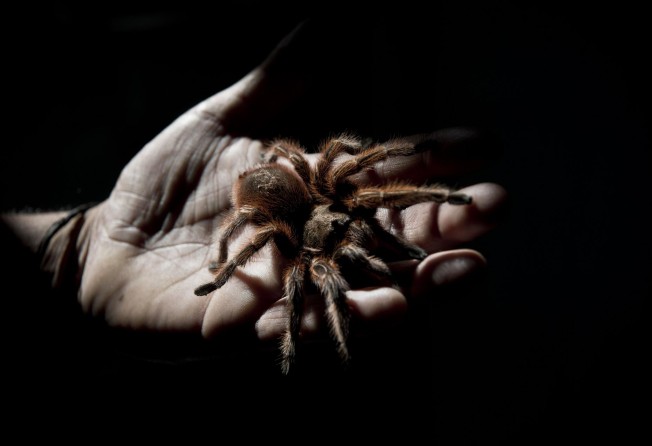Want a furry friend? Try a Chilean tarantula

As pets go, they are low-maintenance. No muss, no fuss, nice and quiet, and even a bit furry. So, how about snuggling up with a giant, non-biting tarantula?
A farm in Chile exports the palm-sized creatures to Asia, Europe and the US for sale as exotic household companions.
They go for US$25 each plus shipping, and need to be fed just once a week, preferably live cockroaches or worms. And they live a long time - up to 25 years in the case of females.
"Not everyone can keep a dog or cat. Tarantulas are cheaper and do not need as much attention. What's more, the world has changed and what with technology and cable television, people are learning about this kind of exotic animal and want one for their home," said Juan Gonzalez, a vet at the farm.
The farm is owned by Juan Pablo Orellana, an agronomist who gathers and raises these Chilean rose-hair tarantula.
Orellana's farm in Batuco exports about 30,000 of them a year. They travel in boxes with holes in them and a certificate that could be seen as a pedigree.
"For me the best part is going out to find new spiders," Orellana said. He gathers arachnids in hills outside the Chilean capital Santiago, and also raises and breeds species that are hardest to find.
In Chile, only 11 species of tarantula have been formally classified scientifically, but he himself possesses 20 different kinds. His farm boasts a rainbow of tarantulas: some have red abdomens, others have copper-coloured skin, and they have varying degrees of hairiness.
After filling his house with pet spiders, Orellana founded his company, called Andespiders, employing family members.
The United States is the farm's main client, and a volume-oriented wholesale one, while European buyers seek fewer tarantulas but a wider variety of species, Gonzalez said.
In recent months the farm has also delivered critters to the University of Antofagasta in northern Chile, which is researching the cancer-fighting features of Chilean spider and scorpion venom.